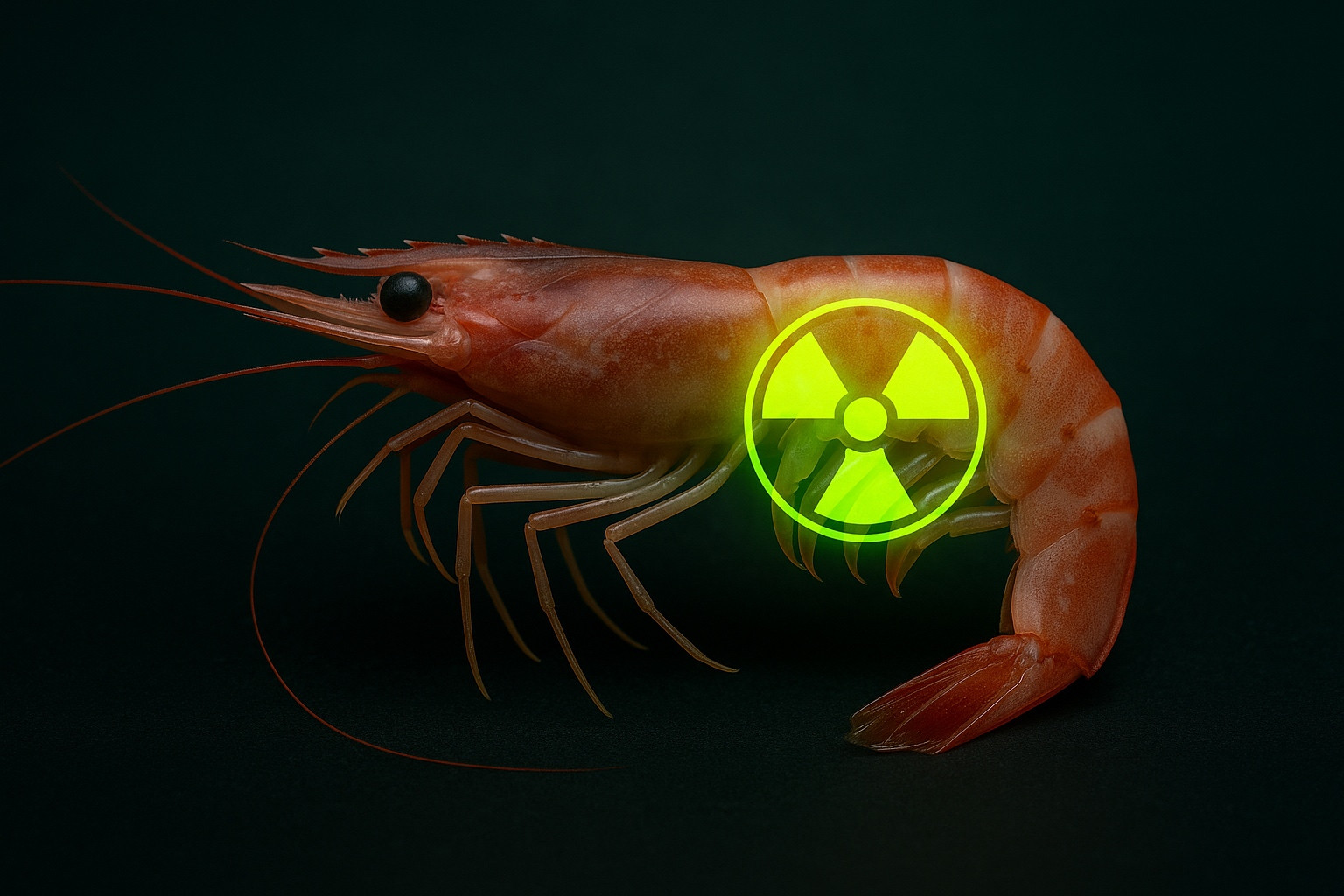In recent days, the U.S. Food and Drug Administration (FDA) announced an expanded recall of frozen shrimp sourced from Indonesia, amidst alarming reports of radioactive contamination. The recall affects several batches of shrimp that might contain Cesium-137, a radioactive isotope that could pose health risks upon consumption. While the recall centers on the ‘Great Value’ items from Wal Mart, it will likely spread from the initial 15 states to more regions in the United States.
USCBP intervened shrimp containers where higher than normal radiation was detected. An FDA warning was triggered afterwards. While shrimp from that batch were not allowed into the rest of the US, reports indicate prior imports made their way into the US food supply.
Usually, in the United States, contamination stems from bacteria like Salmonella, Listeria, or E. coli, which were responsible for more than a third of food recalls last year. This is a bit unusual as shellfish containing Cesium-137, a radioactive isotope, is basically unheard of since the Fukushima incident where a Nuclear reactor overheated and contaminated the nearby seawater.
According to the American Nuclear Scientists committee, the set of containers inspected by US Customs and Border Protection earlier last week was intercepted and never allowed to undock. The container of shrimp had spiked readings for radioactive material. Here’s an excerpt from their summary released on August 21, 2025:
According to the FDA, the products came from an Indonesian food company called PT. (equivalent to an LLC) Bahari Makmur Sejati, which also operates under the name BMS Foods. The shrimp traveled through U.S. ports in Los Angeles, Houston, Savannah, and Miami, where the Cs-137 was detected by U.S. Customs and Border Protection, which in turn alerted the FDA.
BMS’s shrimp is reportedly sold at Walmarts in Alabama, Arkansas, Florida, Georgia, Kentucky, Louisiana, Missouri, Ohio, Oklahoma, Pennsylvania, Texas, and West Virginia.
All contaminated products were denied entry into the country, and there have been no reports of Cs-137-contaminated products entering commerce. However, Walmart has received shrimp that was imported from BMS Foods after the first detection of Cs-137 that did not set off alerts. This subset of shrimp is the group that the FDA recommends disposing. Here are the affected product details:
Product Name Best By Date Lot Code Frozen Raw Ez Peel Tail-On Farm-Raised White Vannamei Shrimp (2 lb bag) 3/15/2027 8005540-1 Frozen Raw Ez Peel Tail-On Farm-Raised White Vannamei Shrimp (2 lb bag) 3/15/2027 8005538-1 Frozen Raw Ez Peel Tail-On Farm-Raised White Vannamei Shrimp (2 lb bag) 3/15/2027 8005539-1 Snippert from ANS report
Federal officials advise consumers not to eat, sell, or serve these products, putting a spotlight on food safety in the seafood supply chain. The source appears to be Indonesian fishing operations near a radioactive site. Nuclear sites are usually situated near ocean water so as to allow for a rotation of processed seawater into their core for cooling. The runoff subsequently returns to see and introduces radioactive content into the food chain.
The FDA’s findings suggest that while the radioactive levels might be within government guidelines, repeated exposure could be harmful.
Reactions on TikTok are quick to critique the oversight, with one commenting, “I think at this point we’re lucky the FDA even gave a notice on the shrimp.” Outrage may also stem from the broader implications of food security and the reliability of agricultural practices.
On BlueSky, many are using humor to mask a serious inquiry into how such contamination occurred, asking, “Who the heck is exposing shrimp to Cesium-137?” As the story unfolds, however, seafood lovers are left wondering about the safety of their culinary choices.

